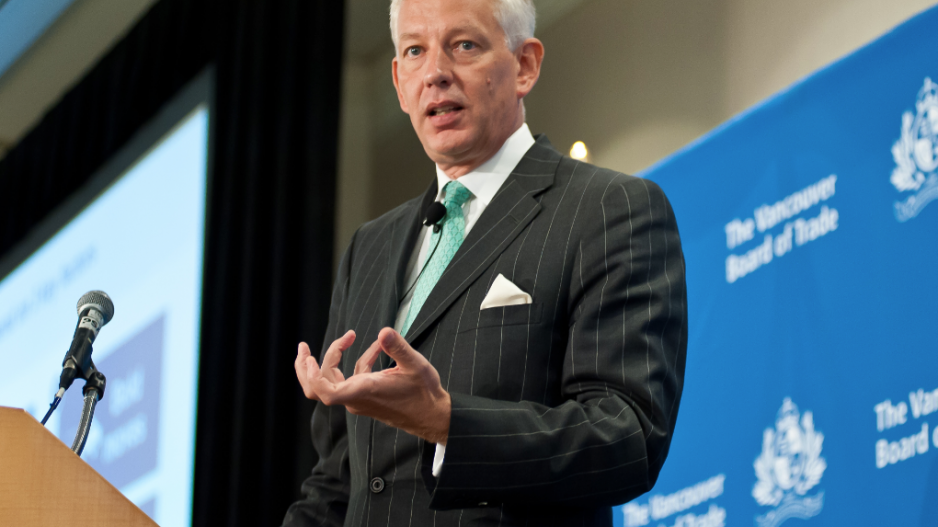The pace of business is running at unprecedented speeds, and companies must radically rethink how they allocate resources and structure themselves to take advantage of the changes.
In a September 9 speech to the Vancouver Board of Trade, McKinsey & Co. global managing director Dominic Barton focused on disruptive technology, Asia’s growing middle class and B.C.’s place in the new world order.
He also warned that opportunities could be squandered if growing global inequalities in wealth and education are not addressed.
“We’re now seeing, since about five years ago, a bifurcation in GDP growth and median family income,” Barton said. “It used to go together and now we have a larger have-not class.”
Barton is based in London but was raised near Chilliwack and is a strategic adviser to HQ Vancouver. That initiative, backed by the provincial government and the Business Council of British Columbia, encourages Asian companies to locate their North American headquarters in B.C.
Barton announced that McKinsey has opened its first Vancouver office and promised to "steal talent" from British Columbia.
Barton said that despite China’s recent economic troubles, he is optimistic about the country’s growth over the long term.
“I’m very confident of China’s growth in at least the next 15 years because of urbanization,” Barton said. “It’s going to be bumpy, but we’re going to have 18 million people a year moving from the rural areas to the cities.”
Declining demand from China has sent commodities on a downward slide for several years. Prices plunged even lower in the aftershocks of two summer stock market routs that shook global markets. The low prices have affected B.C.’s mining, forestry and oil and gas sectors.
But Barton expects commodity prices to rise over the next two to three years.
“I’m very bullish on commodities, even though that may seem to be a strange thing to say,” he said. “I think we should be zigging when other people are zagging; we need to make sure we’re well positioned with LNG [liquefied natural gas].”
Barton also identified tourism, technology, agriculture exports and education as areas that B.C. is particularly well suited to export to China.
Disruptive technology will continue to challenge traditional businesses, and Barton said it’s difficult to predict just how those ripple effects will affect future trends. Businesses that have restructured to become less hierarchical and can quickly reallocate resources will perform best in this new, fast-paced environment.
Barton added that new business models pioneered by Uber and Airbnb are calling into question whether businesses now even need to own assets or employ workers directly.
Without a change in the way we educate future and existing workers, the increasing pace of digital technology and automation will put people out of work and will shut out less skilled people from the labour force, Barton warned.
He heralded partnerships between post-secondary institutions like the British Columbia Institute of Technology and industry to craft flexible courses.
“We have to think about what are the different ways we can give access [to education]. Otherwise we’re headed toward a world of a few billionaires and then the serfs.”
@jenstden




